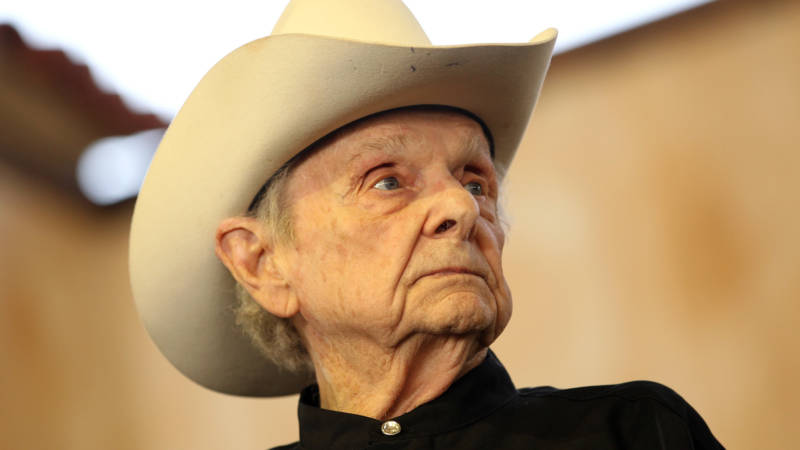One of the early leaders of bluegrass music, Ralph Stanley, has died at age 89. His death was announced by his grandson Nathan Stanley; Stanley’s publicist said in a statement that the cause was complications from skin cancer.
Ralph and his older brother Carter started out in the late 1940s as a duo. After Carter died in 1966, Ralph continued with his band the Clinch Mountain Boys and built a fan base fiercely devoted to his straightforward banjo and archaic-type singing known as the “high lonesome” mountain sound.
High Lonesome
Stanley’s sound came in part from the fact that he often sang in a minor key, while his band played in a happy-sounding major key.
John Wright, who wrote a book on Stanley called Traveling the High Way Home, says that tension between minor and major, plus what he called Stanley’s unearthly smokey vocal tone, “gives this old-time mysterious flavor to the singing. The voice sounds like it’s coming out of the past, like a ghost or something like that.”

9(MDAxOTAwOTE4MDEyMTkxMDAzNjczZDljZA004))

